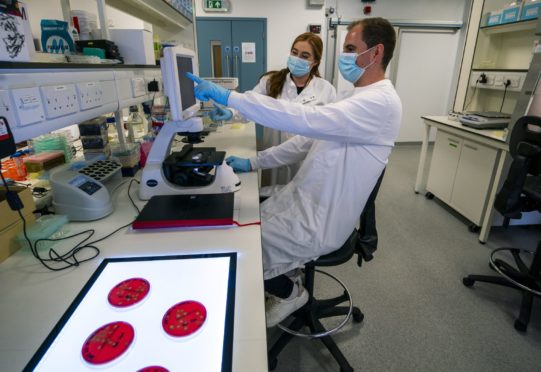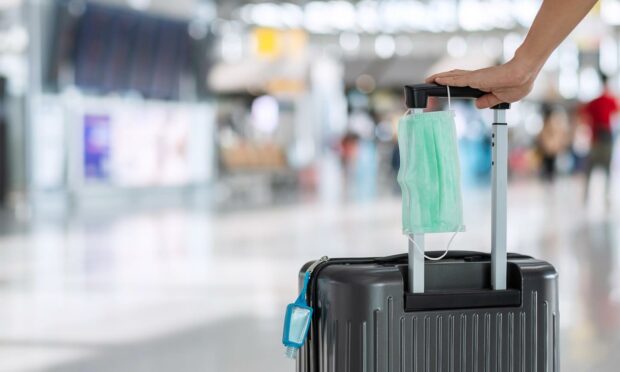Nicola Sturgeon has warned the new Omicron variant could be the most challenging situation facing Scotland for some time in the Covid pandemic.
The new variant was first identified in South Africa recently with the first six cases in Scotland confirmed this morning.
In a Covid briefing, the first minister said the strain is already circulating in the community but contact tracers are still working hard to assess the extent.
She said information on whether the strain will bypass vaccines is currently “limited”.
No doubt situation could be ‘challenging’
She warned Scotland should “prepare for the worst” but that the government is hopeful for something “considerably less”.
Ms Sturgeon said: “The days and weeks ahead will tell all of us much more about this variant and therefore its implications, if there are any implications for our response to the pandemic.
“What we do know at this stage though, in my view, is that we should treat it seriously and that we should continue to act on a precautionary basis at this stage.
“We all hope the emerging understanding of it will reduce rather than increase our level of concern, there is no doubt this presents potentially the most challenging development in the course of the pandemic for quite some time.”
Ms Sturgeon said it is “entirely understandable” if Scots have begun to “stick a bit less rigorously” to the public health advice.
📺 Watch live: First Minister Nicola Sturgeon holds a press conference on #coronavirus (#COVIDー19).
Joining the First Minister today is Chief Medical Officer Dr Gregor Smith. https://t.co/768h2UW9pA
— Scottish Government (@scotgov) November 29, 2021
But she said “now is the time” to start following that advice again while cautioning there is no evidence to suggest the variant causes more serious illness.
Hopes for ‘normal Christmas’
She said this would make it less likely further measures would need to be introduced and allow Scots to enjoy a “more normal Christmas”.
Deputy First Minister John Swinney had earlier told BBC’s Good Morning Scotland there was some community transmission of the virus already because some of those with the strain had not travelled.
Four of the cases in Scotland are in Lanarkshire and two are in the Greater Glasgow and Clyde health board area.
Scientists do not yet know to what extent the strain, which has an unprecedented number of spike mutations, will bypass the vaccines currently available.
But the World Health Organisation (WHO) has warned it is very likely to spread internationally.
Travel rules tightened
It remains to be seen whether the strain is more contagious or virulent.
Many governments have already moved to tighten up safety measures amid increasing cases of the dominant Delta variant and concern over Omicron’s threat.
The Netherlands, which has seen record Covid cases recently, has closed hospitality and cultural venues such as pubs and cinemas for the next three weeks.
Austria, also dealing with record cases, recently introduced lockdown measures for anyone not fully vaccinated.
England has reintroduced compulsory use of face masks on public transport and in shops.
PCR tests are required of anyone returning to the UK from abroad, while arrivals must quarantine for 10 days if travelling from a red list country.
More to follow.


